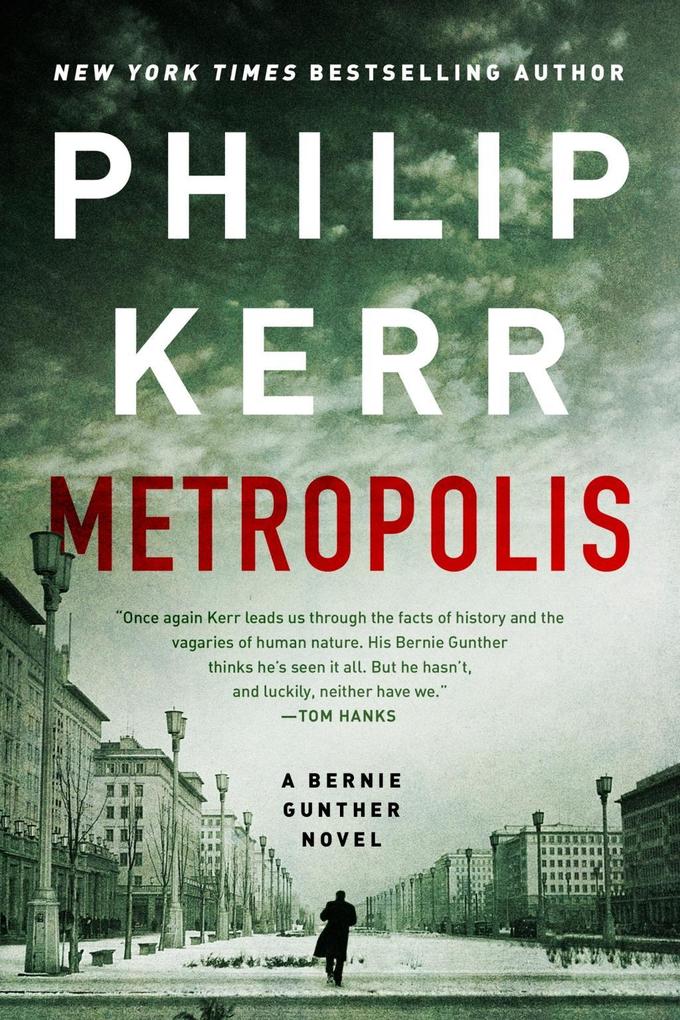
Sofort lieferbar (Download)
"[Metropolis is] a perfect goodbye--and first hello--to its hero. . . Bernie Gunther has, at last, come home."--Washington Post
New York Times-bestselling author Philip Kerr treats readers to his beloved hero's origins, exploring Bernie Gunther's first weeks on Berlin's Murder Squad.
Summer, 1928. Berlin, a city where nothing is verboten.
In the night streets, political gangs wander, looking for fights. Daylight reveals a beleaguered populace barely recovering from the postwar inflation, often jobless, reeling from the reparations imposed by the victors. At central police HQ, the Murder Commission has its hands full. A killer is on the loose and though he scatters many clues, each is a dead end. It's almost as if he is taunting the cops. Meanwhile, the press is having a field day.
This is what Bernie Gunther finds on his first day with the Murder Commisson. He's been taken on beacuse the people at the top have noticed him--they think he has the makings of a first-rate detective. But not just yet. Right now, he has to listen and learn.
Metropolis, completed just before Philip Kerr's untimely death, is the capstone of a fourteen-book journey through the life of Kerr's signature character, Bernhard Genther, a sardonic and wisecracking homicide detective caught up in an increasingly Nazified Berlin police department. In many ways, it is Bernie's origin story and, as Kerr's last novel, it is also, alas, his end.
Metropolis is also a tour of a city in chaos: of its seedy sideshows and sex clubs, of the underground gangs that run its rackets, and its bewildered citizens--the lost, the homeless, the abandoned. It is Berlin as it edges toward the new world order that Hitler will soo usher in. And Bernie? He's a quick study and he's learning a lot. Including, to his chagrin, that when push comes to shove, he isn't much better than the gangsters in doing whatever her must to get what he wants.
New York Times-bestselling author Philip Kerr treats readers to his beloved hero's origins, exploring Bernie Gunther's first weeks on Berlin's Murder Squad.
Summer, 1928. Berlin, a city where nothing is verboten.
In the night streets, political gangs wander, looking for fights. Daylight reveals a beleaguered populace barely recovering from the postwar inflation, often jobless, reeling from the reparations imposed by the victors. At central police HQ, the Murder Commission has its hands full. A killer is on the loose and though he scatters many clues, each is a dead end. It's almost as if he is taunting the cops. Meanwhile, the press is having a field day.
This is what Bernie Gunther finds on his first day with the Murder Commisson. He's been taken on beacuse the people at the top have noticed him--they think he has the makings of a first-rate detective. But not just yet. Right now, he has to listen and learn.
Metropolis, completed just before Philip Kerr's untimely death, is the capstone of a fourteen-book journey through the life of Kerr's signature character, Bernhard Genther, a sardonic and wisecracking homicide detective caught up in an increasingly Nazified Berlin police department. In many ways, it is Bernie's origin story and, as Kerr's last novel, it is also, alas, his end.
Metropolis is also a tour of a city in chaos: of its seedy sideshows and sex clubs, of the underground gangs that run its rackets, and its bewildered citizens--the lost, the homeless, the abandoned. It is Berlin as it edges toward the new world order that Hitler will soo usher in. And Bernie? He's a quick study and he's learning a lot. Including, to his chagrin, that when push comes to shove, he isn't much better than the gangsters in doing whatever her must to get what he wants.
Mehr aus dieser Reihe
Produktdetails
Erscheinungsdatum
09. April 2019
Sprache
englisch
Seitenanzahl
384
Dateigröße
4,64 MB
Reihe
Bernie Gunther, 14
Autor/Autorin
Philip Kerr
Verlag/Hersteller
Kopierschutz
mit Adobe-DRM-Kopierschutz
Family Sharing
Ja
Produktart
EBOOK
Dateiformat
EPUB
ISBN
9780735218918
Entdecken Sie mehr
Bewertungen
0 Bewertungen
Es wurden noch keine Bewertungen abgegeben. Schreiben Sie die erste Bewertung zu "Metropolis" und helfen Sie damit anderen bei der Kaufentscheidung.

































